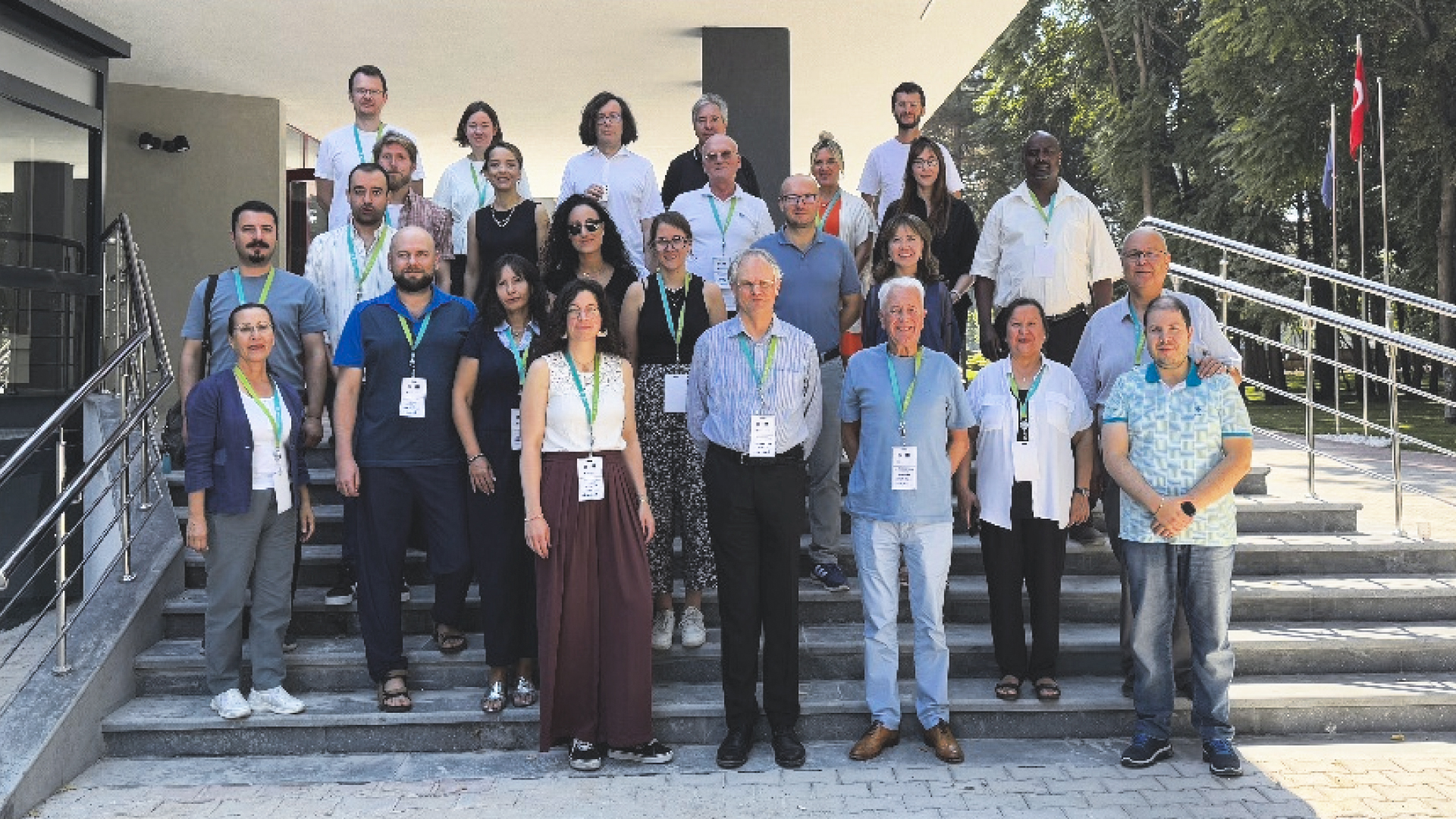The 4th Meeting of Partners of the Horizon Europe Project “SKILLS4JUSTICE” Took Place (4–5 September 2025, Turkey)
A delegation from the State Scientific Institution “Institute of Educational Analytics” consisting of Director Andrii Lytvynchuk, Deputy Director for Scientific and Organisational Work Hanna Tereshchenko, and Head of the Higher Education Sector Serhii Melnyk took part in the 4th meeting of representatives of the Consortium for the implementation of the project “Skill Partnerships for Sustainable and Just Migration Patterns (SKILLS4JUSTICE)” (Grant No. 101132435), which was held on 4–5 September 2025 at Ankara University (Turkey).
Within the two-day programme of the meeting, the delegation took part in:
-
review of the reporting information on the completion of activities of Work Packages 3 and 4 (WP3 and WP4);
-
discussion of the progress of the current activities of Work Package 4 (WP4);
-
consideration of presentations and their discussion with partners from the United Kingdom, Ethiopia, Italy, Lithuania, Germany, Norway, North Macedonia, Poland, Turkey, France, and Ukraine;
-
coordination of further work, its scope and deadlines, primarily within Work Packages 5 and 6 (WP5 and WP6);
-
familiarisation with additional organisational, methodological, and financial information.
With the presentation “Information for the 4th SKILLS4JUSTICE Meeting from the Ukrainian Partners”, Andrii Lytvynchuk addressed the participants. In particular, he acquainted foreign colleagues with the progress of the planned activities, the available results (publications, conferences), and the plans for the completion of the project. Separately, the results of sociological research among internally displaced persons (IDPs) and refugees were presented. The main ones are as follows:
-
a questionnaire survey and interviews of 160 refugees were conducted in 14 countries (90 and 70 respondents respectively), three-quarters of whom are located in Italy, Germany, and Poland;
-
more than 80% of respondents are women, mostly aged 35–54;
-
the majority have higher education (master’s or bachelor’s degree);
-
93% have the right to work, but diplomas are recognised in only 20% of cases.
No less important for Ukrainian stakeholders is a study among 400 IDPs in 14 regions of Ukraine. The key findings of this research are as follows:
-
two-thirds of respondents are already employed;
-
the overwhelming majority of employed IDPs are officially working in large private companies or state institutions/organisations;
-
the main challenges are the need for retraining and isolated cases of discrimination on linguistic or regional grounds.
The research data highlight a number of important theses, including:
-
recognition of diplomas and qualifications is a critical factor for the integration of Ukrainians into EU labour markets;
-
retraining programmes are in demand by both refugees and IDPs;
-
psychological and social adaptation is no less important than economic integration;
-
state support should become more systematic – both for return and for adaptation.
The participants of the meeting were oriented towards the start of preparation of the final reports for WP4, WP5, and WP6 with the implementation of the following requirements and approaches: the theoretical base should be supplemented with approaches focusing on justice and the personal views of migrants regarding skills formation and employment; a theoretical analysis of political discourses on migration and qualifications is required; research should be more focused on the interconnections between skills; the views and interests of migrants’ countries of origin should be presented more clearly and elaborated in greater detail.





